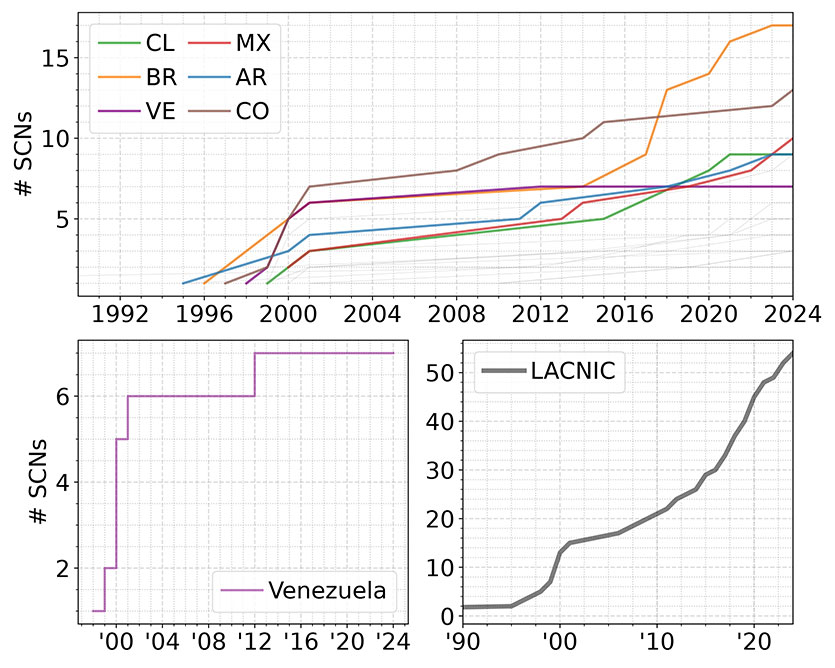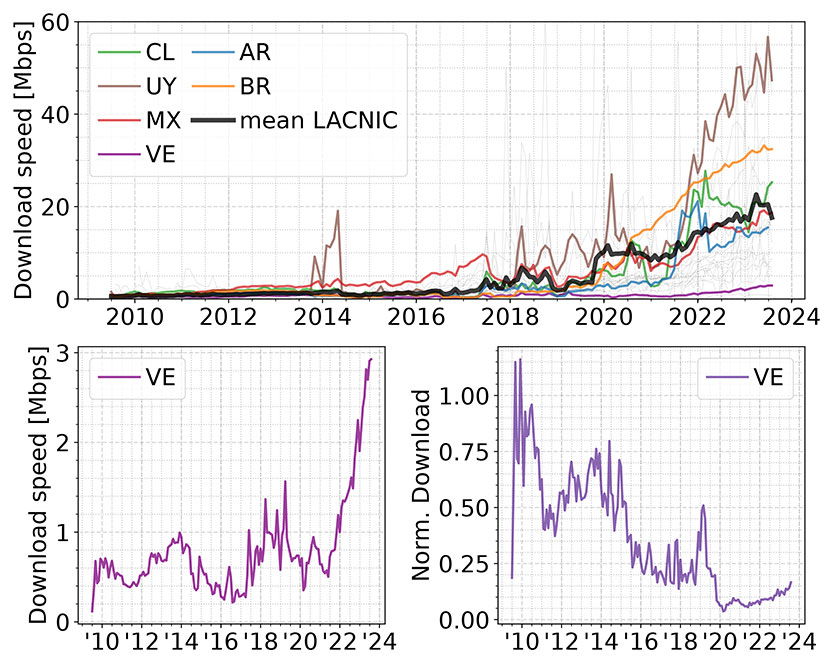Impact of the Venezuelan Crisis on the Country’s Internet
AquaLab researchers examine Venezuela’s declining connectivity landscape
Over the last decade, the multidimensional Venezuelan crisis has profoundly impacted the country’s public and private sectors, from political and economic destabilization to the deterioration of public health services and extended energy blackouts.
 In a new study, Northwestern Engineering’s Fabian E. Bustamante and Esteban Carisimo examined the ramifications of the crisis on a previously unexplored area — Venezuela’s Internet infrastructure. They aimed to better understand the declining connectivity landscape and the potential long-term consequences on the network to help inform mitigation strategies.
In a new study, Northwestern Engineering’s Fabian E. Bustamante and Esteban Carisimo examined the ramifications of the crisis on a previously unexplored area — Venezuela’s Internet infrastructure. They aimed to better understand the declining connectivity landscape and the potential long-term consequences on the network to help inform mitigation strategies.
“Understanding the repercussions of the crisis on such a critical component of modern society as the Internet becomes imperative for charting a path to recovery,” said first author Carisimo, a postdoctoral scholar in computer science at the McCormick School of Engineering.
Carisimo and Bustamante, professor of computer science at Northwestern Engineering, will present the paper at the flagship Association for Computing Machinery Special Interest Group on Data Communication conference, to be held August 4 - 8 in Sydney.
Leveraging several complementary datasets, the project team, including computer science PhD students Rashna Kumar and Caleb Wang and collaborators at the Universidad de Buenos Aires, revealed the significant impact of the crisis on the state of Venezuela's Internet. They reported findings of bandwidth stagnation, limited network infrastructure growth, and high latency compared to average service in Latin America.
The team studied core infrastructure to access networks, evaluating metrics including bandwidth measurements, changes to the submarine cable network, and routes to root Domain Name System (DNS) servers.
“While the rest of Latin America has seen substantial growth in network infrastructure, such as an increasing number of submarine cables and peering facilities, Venezuela has been left behind,” said Bustamante, who directs the AquaLab, a research group that investigates large-scale networks and distributed systems.

Carisimo explained that, while the region has added numerous submarine cables, Venezuela has established only one new connection to Cuba. Similarly, countries such as Argentina and Brazil have expanded their interdomain connectivity and increased Internet speeds by creating multiple Internet exchange points — key network infrastructure critical to optimize local network traffic exchange.
“Venezuela has seen no such expansion, leaving its state-owned Internet provider, CANTV, without US-based transit routes and increasing its reliance on domestic markets,” Carisimo said. “The consequences of these discrepancies are stark. For instance, while global download speeds have improved significantly, Venezuela’s average download speed has stagnated below 1 Mbps for over a decade, lagging far behind the rest of Latin America, where median speeds are around 20 Mbps.”

The research team also found clear signs of decline in Venezuela’s DNS infrastructure. Efficient DNS servers, Carisimo noted, should be in proximity to users to minimize response time and ensure resilience. Their investigation demonstrates that Venezuela predominantly relies on overseas resources for DNS services, with most of these servers located in the United States, Great Britain, Germany, France, and the Netherlands.
“Users relying on Google's popular public DNS service face latencies twice as high as the regional average,” Bustamante said. “As networks constantly evolve to support increasing traffic and the demand for a better quality of experience, Venezuela’s crisis likely impedes capital investments to match the pace of growth seen in its Latin American peers.”